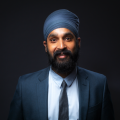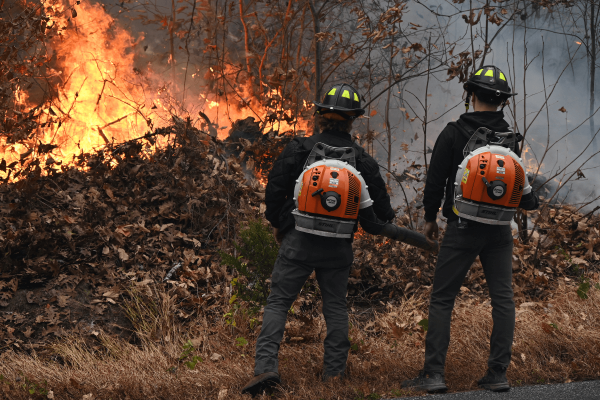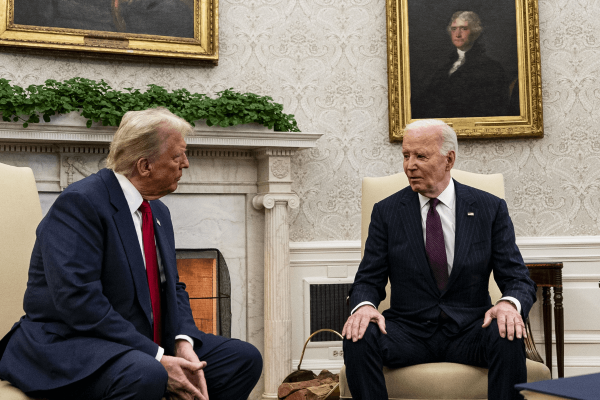Cecilia Muñoz is one of the foremost experts on immigration in America today. In 2008, President-elect Barack Obama appointed her to his White House staff as the Director of Intergovernmental Affairs and later was appointed as Director of the Domestic Policy Council.
Prior to joining his staff, Cecilia served as senior vice president for the Office of Research, Advocacy and Legislation at the National Council of La Raza (NCLR), the largest Latino advocacy organization in the United States. She is currently the Vice President for Public Interest Technology and Local Initiatives at New America. Muñoz is a Detroit native, the daughter of immigrants from Bolivia, a wife, and mother of two grown daughters.
I’m grateful for her openness and her constant willingness to lead with her heart, and I’m excited for her upcoming book, More Than Ready, which will be published in May of 2020.
You can listen to the full interview on my new podcast, “Spirited.” Listen on any of the major podcast apps: Apple Podcasts, Spotify, and Stitcher. The interview below has been edited for length and clarity.
Simran Jeet Singh: What’s at your core, what drives you?
Cecilia Muñoz: I describe myself first and foremost as a Latina. I am also a mom, a daughter of immigrants, a Midwesterner, and a policy nerd. I’m a person who believes in our ability to make collective decisions and execute on those decisions and be a society where we're creating opportunity for each other and helping each other be our best. I focus a lot on communities of color, on immigrant communities, and on economic opportunity.
My parents came with not very much other than my dad's education, but they arrived in Detroit in the 50s when Detroit was booming. Detroit is a city that made the American dream real for my parents, and I came up with a very deep sense that my job was about making that possible for everybody.
Singh: How did you get into your work with immigration rights and advocacy?
Muñoz : I did my undergrad at Michigan and my graduate work at Berkeley. When I was in college in the '80s, there were just not a lot of Latinx people at the University of Michigan. When I got to Cal, suddenly there were Latinx people everywhere, the street names were in Spanish, and the towns around were Spanish names. That was when I really connected to the kind of history and tradition of this community that I felt a part of without even knowing it was there.
While in grad school, I volunteered at a Catholic-run legal clinic for immigrants. I’ve been doing some level of immigration work ever since. I was very sure that I was destined to be a service provider. I did that as a volunteer and then I moved to Chicago and worked for the Catholic Church. I helped run a legalization program after the ‘86 immigration law. Three million people were able to legalize their status and I ran the program for Catholic Charities in Chicago and helped formed an Immigrants Rights Coalition.
While working, I could not let go of the people that we couldn't help because they didn't qualify. I lost sleep about it. I agonized and it helped me realize I'm not actually cut out to be a direct service provider, but I did find my voice as an advocate. I learned that there were ways in which the laws and the systems didn't help the people we saw every day. That was kind of my introduction to advocacy work.
Singh: Was moving from providing direct services to government a natural transition or did you struggle with that? What were some of the challenges?
Muñoz : I didn't intend to go into government. I resisted going into government when President Obama asked me to serve because I had teenage daughters at home and my mother had recently passed away. I was very focused on not turning my kids' lives upside down. But he’s a very persuasive guy. The president knew who I was. He had met me as an immigration advocate. He knew exactly what he was getting and what he was asking for. So, I thought, maybe he's doing this on purpose. I still wasn't sure that I would fit. We are frequently firsts and frequently ‘onlys.’ I’ve talked to other women of color who have done amazing things and they all have experienced it too.
It’s hard to describe, but I sort of put myself in the presence of the people who inspire me, whose voice I'm trying to be. Then it doesn't matter so much if the person sitting across the table from me has three PhDs or was the president of whatever Ivy League college. That’s impressive stuff but that person doesn't know the people from the parish in Chicago, Illinois. I have that information, and if we're going to do this work well, that context matters.
Singh: We’re raised to believe that America is the best and anything coming from the outside is inferior. I've certainly struggled with that internalization myself growing up in an immigrant family. You also come from an immigrant family, you married an immigrant, and you've been working with immigrants for your entire life. Have you ever had to confront xenophobia that you have internalized personally?
Muñoz: I think so, but I am sensitive to the fact that I had a different set of things to internalize. I'm 100 percent Latina, but you wouldn't necessarily know when you look at me. I look like what my daughter would call ‘white passing.’ I have one daughter who describes herself as white passing and one daughter who, because she looks more like my husband, is identifiably brown. I realize that her experience walking through the world is different than her sister's and is different than mine. I think some of what gets internalized has to do with how people react to you on the basis of what you look like, and so, my experience was different. However, I grew up with the sense that at some level, we came here on purpose and we had opportunity here that we wouldn't have had back in Bolivia, so there was something superior about this place. I think I internalized that.
Singh: What is your hope for the future? What are you looking, what are you looking forward to and what would you like to see?
Muñoz : I consider myself very fortunate that I learned from President Obama how to play the long game. I frequently describe the time we are in as fog lifting on things that have always been true about us, but that we haven't always acknowledged or seen. I feel that way about police violence against black and brown people, things that women have had to deal with since forever, and things immigrants and migrants experience to a degree. So, my hope is that living in this time of fog lifting, we can take what we see and use that information to create the multiracial and multiethnic society we have been trying to be.
I think we all wish that we weren't in the time we are living in. I firmly believe we didn't stop being the place that elected Barack Obama twice. We're still that hopeful country, but we never stopped being the place that enslaved people, interred Japanese Americans, and committed genocide against Native Americans. Like we're still that place too. We are all of those things at the same time. The more we understand that, I think the greater our capacity to do better.
Got something to say about what you're reading? We value your feedback!






